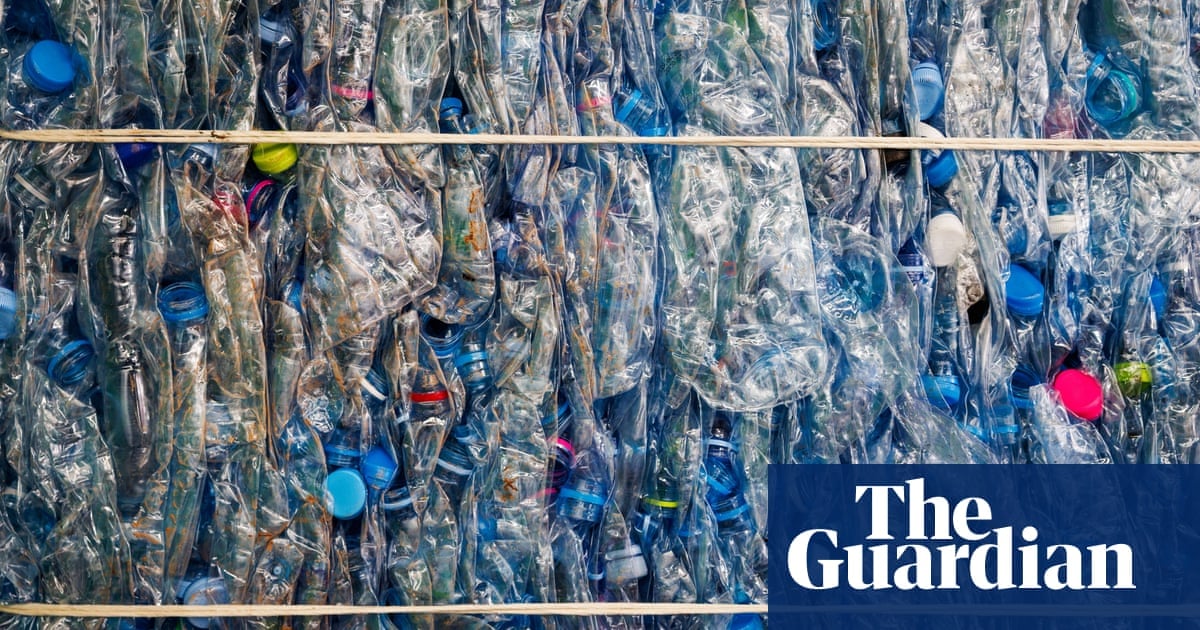Even a majority of Republicans support efforts to hold manufacturers accountable for allegedly deceptive claims
Concern about the fossil fuel and plastics industries’ alleged deception about recycling is growing, with new polling showing a majority of American voters, including 54% of Republicans, support legal efforts to hold the sectors accountable.
The industries have faced increasing scrutiny for their role in the global plastics pollution crisis, including an ongoing California investigation and dozens of suits filed over the last decade against consumer brands that sell plastics.
Research published earlier this year found that plastic producers have known for decades that plastic recycling is too cumbersome and expensive to ever become a feasible waste management solution, but promoted it to the public anyway.



“…for recycling.” Seattle does not accept plastics for melting down and recycling, only for cleaning and reuse. If you’re putting all plastics with a recycling symbol in your bin, then you really should check out the “Where Does it Go” tool on the website. https://www.seattle.gov/utilities/your-services/collection-and-disposal/where-does-it-go
If you look through most of the plastics sections, if the item is not cleanable and reusable, most of the time it says to put it in the garbage bin. If you browse the site a bit you’ll see that they specifically mention that since China stopped taking “recyclables”, there is a lot less that can go in the recycling bin and it basically says to ignore the labels on plastics and instead go based on the reusability based on the function of the item rather than the material.
(Sure I probably shouldn’t blanket say that there is no type of plastic that they recycle, but for the average person who hasn’t worked in the plastics industry and doesn’t understand the difference between PVC and polyethylene for example, it’s best to just use the general rule of thumb that if it’s broken it goes in the garbage because it’s not getting melted down, reformulated, and made into a new, lower quality product in 99%+ of cases. People shouldn’t have to think that hard to know what bin to put it in, so it’s best to toss it if you aren’t sure. Otherwise we just increase the costs for everyone when more sorting and disposal has to happen at the recycling plant.)
I never said I’m putting all plastics in the bin. I know which can and cannot be recycled. You falsely said that Seattle does not accept plastic for recycling. End of story.
I’m the one who linked you their rules.
Yes, it should be easier. But that’s the case everywhere.
I specifically said “for recycling”.
And that is what this article is about. Not about cleaning and reuse, which can be done by anyone, but melting down and recycling which takes specialized equipment and a market for the reduced quality recycled materials, in addition to the expense of sorting and cleaning to reduce contamination.
Seattle does not recycle plastics nor does any recycling company in the US with the exception of a very small subset of materials which are primarily from industrial sources, not consumers.
It goes in the recycling bin. You said Seattle does not accept plastic for recycling. That is false. What they do with it after that is a different story. But you were basically telling people not to recycle any plastics in Seattle, against Seattle’s recommended policy.
But the entire point of this article was about “recycling”, not “reuse”. And “recycling” means breaking something down and making something new out of it, not cleaning and reselling for reuse which requires that the items are intact and cleanable. Seattle does not do that with plastics and thus does not “recycle” them. So as I keep stating Seattle does not accept plastics “for recycling”. Which is a true statement that can be verified on their website.
And reuse is not what the original article is talking about and thus not relevant. Most recycling companies process plastics “for reuse”. None in the US accept them “for recycling” (with the exception of some industrial sources) and never have since the beginning of the “Reduce, Reuse, Recycle” program in the US. They have always shipped that material elsewhere and those places have just thrown them in landfills. Which is the whole point of this article and discussion.